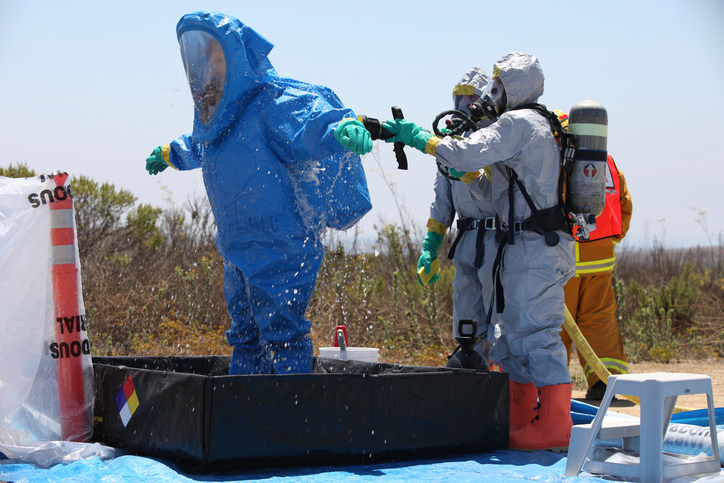Every year, thousands of people are injured while working on the job, many of them in the healthcare industry. Occupational safety and health professionals are there to help.
Hospitals and medical clinics actually have more safety concerns than many other industries. They include ensuring the safety of workers around potentially infectious patients, as well as creating work environments where nurses have less chance of injuring their backs (a common problem in the profession).
Hospitals and other healthcare organizations also face a complex tangle of government and industry regulations on safety with which they must conform.
This makes those who work in occupational safety very valuable members of a healthcare team.
Healthcare Safety
According to the Board of Certified Safety Professionals, occupational safety workers in healthcare face a number of challenges. In addition to the issues mentioned above, they can also must ensure that all buildings adhere to national fire and safety codes. This applies especially for hospitals and nursing homes.
Occupational safety careers typically involve a continuous assessment of the hospital environment, looking for any potential hazards as well as making sure the entire operation adheres to stringent government and industry regulations.
It’s a tough but rewarding job. According to the U.S. Department of Labor, hospitals are one of the most dangerous places to work in the United States. More than 253,000 injuries occur in hospitals every year, or almost seven injuries for every 100 workers. That’s more than double the rate for all other industries.
Almost 59,000 of those injuries or illnesses caused workers to miss work time. Those numbers mean that it is “more hazardous to work in a hospital than in construction or manufacturing,” according to the federal government.
Part of this is because healthcare workers feel a duty to help patients, meaning they sometimes put themselves into difficult or risky situations.
Occupational Safety Jobs
Jobs in occupational safety in the healthcare industry can go under many different titles, depending on the exact nature of the job and the type of facility. The following titles are some available, taken from current job listings.
Occupational Health Manager. Oversees employee health and safety programs. These jobs include educating employees on health and safety as well as developing a system to track employee safety and health needs, and responding to those needs.
Radiation Safety Specialist. This is an example of an occupational safety professional working in a specialized area. Those who work in this job ensure the safety of patients, workers and visitors to areas in medical centers where cancer is treated with chemotherapy, for example.
Occupational Health Nurse. A nurse in this position typically has the responsibility of educating staff on safety issues, monitoring their health (including giving physicals) and ensuring accurate reporting on workplace illnesses and injuries, among other duties.
Hospital Facility Safety Manager. This person has the responsibility to ensure that a medical facility meets all safety regulations. They focus primarily on the physical grounds and equipment, making sure patients and employees are safe in the hospital environment.
As the healthcare industry continues to grow, the need for professionals in occupational safety and health will grow, as well. It’s a challenging but rewarding occupation that can translate to jobs in other industries, as well.









